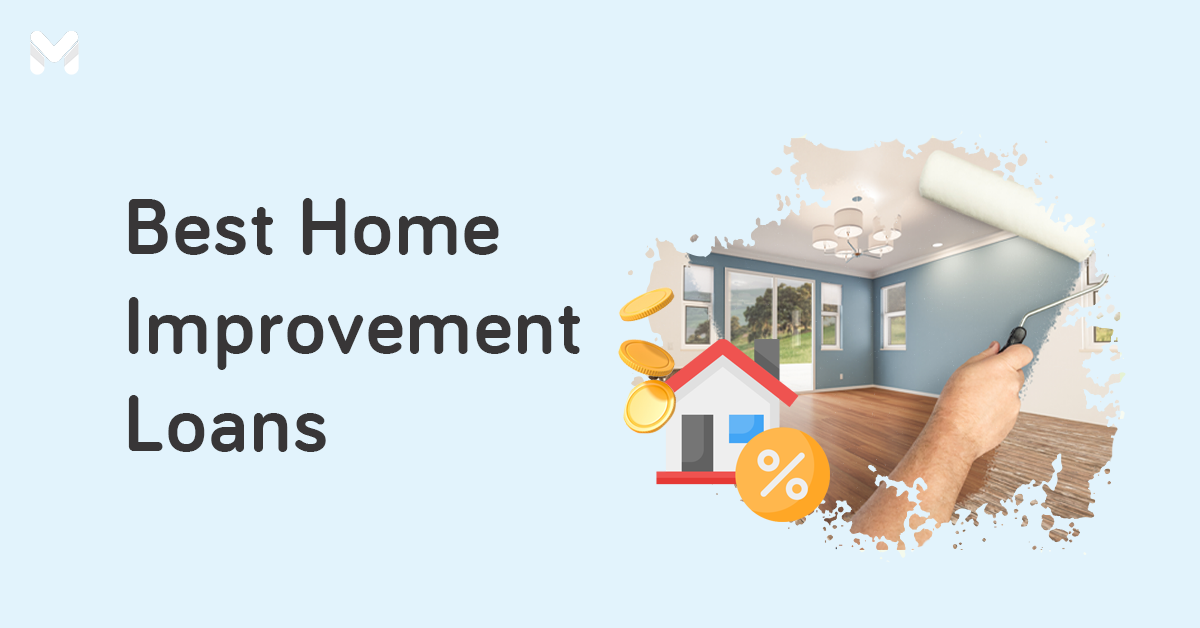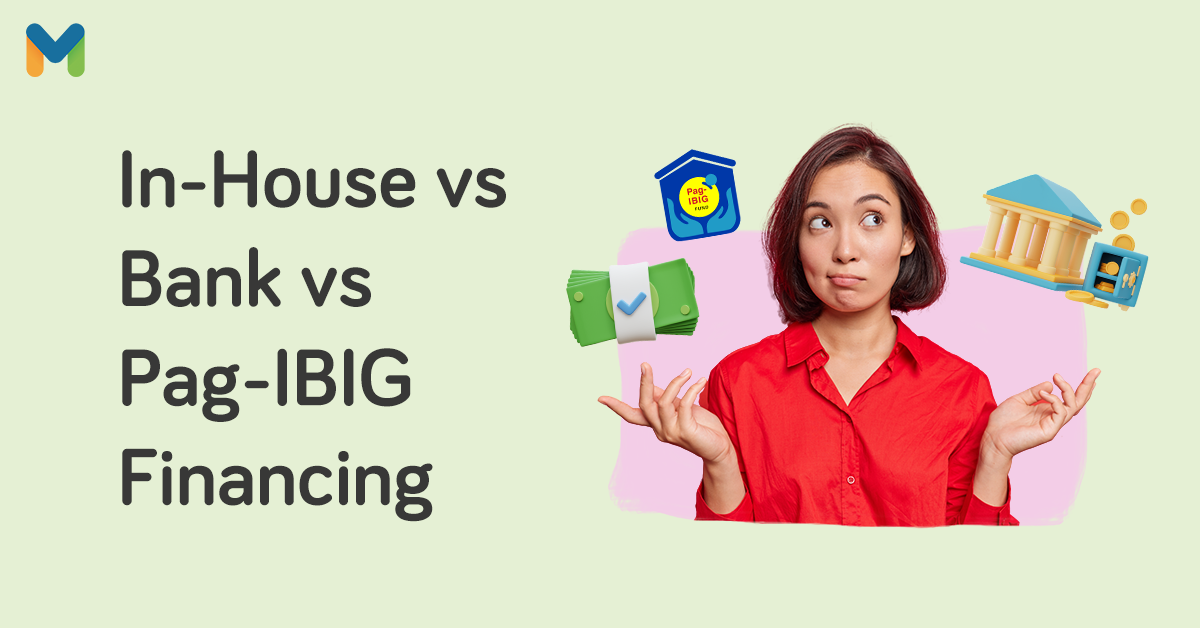
In a ZipMatch homeownership survey, 32% of young Filipino professionals said they were not sure about their financial capability to purchase a home. Also, four out of 10 respondents said they did not have ample savings even for a down payment.
This shows how much Filipinos, especially millennials, need to be educated about their various options for financing a new home. A housing loan is one of them. Getting a loan from a bank or government institution can help you buy or build your dream home without blowing your budget and entire savings.
But not all home loans will suit you. This is why it is crucial that you take steps that will enable you to choose the right housing loan.
1. Find Out How Much You Can Afford to Repay
Being a responsible borrower means being self-aware of your financial situation. You do not want to find yourself in a messy situation where you’re struggling to pay your monthly amortizations just because of a wrong choice of loan. Worse, it could lead to foreclosure and losing your precious investment.
So be proactive. Before you go hunting for the best housing loan and apply for one, be sure you know your financial capability. Do a reality check. How much money are you making? Do you have debt? If so, how does your debt stack up against your income? Ask yourself those important questions. In doing so, you can have a good estimate of the amount you can borrow and realistically pay.
When you assess your financial capability, it is best to wear the lender’s hat. If you were to lend money to someone else, how would you know if that person could pay you back?
Housing loan providers in the Philippines have a meticulous process for evaluating whether or not an applicant is worth lending to. Lenders in general look at three things in every housing loan application:
- Income - to determine if the loan suits the borrower’s paying capacity
- Credit history - to check if the borrower can handle finances well and repay debts on time
- Debt-to-income ratio - to measure the borrower’s ability to repay a loan by computing the percentage of income that will go to debt repayments
Financial experts advise that you choose a loan with a monthly amortization that is 30% (or lower) of your monthly net income. For example, if your take-home pay is Php 30,000, your monthly loan repayment should not be higher than Php 9,000.
In addition to your capacity to pay, consider also the property’s appraised value when choosing a home loan, as it affects the loanable amount. You can borrow at least Php 300,000 up to 80% of the property’s value from banks. The Pag-IBIG housing loan amount ranges from Php 100,000 to Php 6 million.
2. Use a Housing Loan Calculator
As you search for the best housing loan, you will have to deal with a lot of numbers—there is no escaping them. Got no time and patience for that? You have housing loan calculators at your disposal.
What is a housing loan calculator and how does it work? It is an easy-to-use online tool that helps borrowers compute the loan amount they can afford. Using the calculator shows the monthly mortgage amount based on various factors such as the price of the property, down payment, and interest rate.
Most home loan providers, including government agencies, have their respective loan calculator on their website. Use them to your advantage so that it will be easier for you to find the right home loan for you.
Housing loan calculators come in two types: the maximum loanable amount calculator and amortization or mortgage calculator. You have to know the distinction between the two calculators.
Use a maximum loanable amount calculator if you want to know how much you can borrow and how much you will pay in monthly installments. The computation is based on your gross monthly salary and your preferred loan term and repricing period.
The amortization or mortgage calculator shows the approximate principal plus interest (also called the EMI or equated monthly installment) and the gross monthly income requirement you must meet to qualify for a particular housing loan. It takes into account your chosen loan term, loan amount, and repricing period.
3. Consider Only Home Loans Where You Will Qualify
To save time and energy in your hunt for the best housing loan, trim down your options to lenders whose loan eligibility requirements match your profile (e.g., age, income, employment status, credit history, etc.).
Housing loan requirements vary from one lender to another. Check the details on the lenders’ websites and filter out the ones where you do not qualify. Take a look also at the required documents of each lender and make sure you can submit all of them.
4. Shop Around for Interest Rates That Will Work for You
As with any kind of loan, the interest rate is one of the most important considerations when deciding which housing loan to get. The lower the rate, the lower interest you will be paying for the entire loan term. And typically, interest rates are lower when the loan terms are shorter and the down payment is higher.
Your negotiation or haggling skills can come in handy when you want to get the best rate for your housing loan. Real estate experts advise prospective borrowers to show their bank the interest rates of other banks (via brochures or website screenshots). Banks may match the rates and offer you a better deal. It also helps to build a good relationship with your bank to get a lower home loan rate. With the tough competition between banks, it is not that hard to find the best interest rates on housing loans.
Aside from the rate itself, you also need to choose between fixed and variable or adjustable interest rates. The right option depends on your preference. Fixed rates allow easier managing of your budget because they offer a sense of certainty. In contrast, variable rates can be cheaper because of the lower initial rates.
5. Consider the Housing Loan Fees
Lenders charge a variety of fees that have to be paid upon loan application and before they release money to borrowers. Some of the loan fees are already bundled in the mortgage.
Housing loans in the Philippines differ in the amount and computation per fee. If you are looking to save money on your housing loan application, take the fees into account when choosing a loan that is best for you.
When shopping around for home loans, take note and compare the fees that banks and government agencies require. Here are the most common housing loan fees:
- Appraisal fee. This is the cost of a professional appraiser’s service, including ocular inspections of the property. The appraiser assesses the value of the property you are going to buy and computes its market value or selling price. It ranges from Php 3,500 to Php 5,500.
- Handling fee. This is the cost of processing a housing loan application, including the administrative expenses and credit investigation. It ranges between Php 3,500 to Php 11,500.
- Registration fee. It is the payment for registration of a Deed of Absolute Sale, where the property developer or seller transfers the home ownership to the buyer.
- Notarial fee. This is the cost of notarizing the Deed of Absolute Sale.
- Mortgage redemption insurance (MRI). MRI is the life insurance premium that pays the remaining mortgage balance in case of the homebuyer’s death or permanent disability.
- Fire insurance. This insurance policy protects the homebuyer against any loss from property damage due to fire.
- Documentary stamp tax. It is the type of tax paid on loan agreements involving sale or transfer of a property.
6. Get Pre-qualified for a Housing Loan
Pre-qualification is a simple and quick process that allows you to figure out how much you can loan and the property price range you can afford. It entails visiting banks and government offices (Pag-IBIG or SSS) and discussing with their loan officers your needs and goals for applying for a housing loan.
To get a clear picture of your financial status, the lender will ask you to provide the following information:
- Monthly or annual income (or combined income for married applicants)
- Assets (including savings and investments)
- Liabilities (including debts and existing loans)
- Your preferred loan repayment period
- Estimated or maximum down payment
- Personal details (name, contact details, etc.)
- Employment details
- Co-borrower information (if any)
The lender will then explain the options available to you and make recommendations based on the information you have provided.
Getting pre-qualified for a home loan can also be done online. Just go to the housing loan section of a bank’s website and look for the link for pre-qualification.
Note, though, that loan pre-qualification is different from pre-approval. The latter requires filling out a loan application form and submitting some income documents to the lender. You do not have to do that yet if you are still weighing your housing loan options.
Finding the best housing loan for your needs and budget takes a lot of time, patience, and research. But all your efforts will be worth it once you take out a loan and move to your dream home.
If you barely have the time and patience for comparing your different housing loan options, do not fret. You can use a free online comparison service like MoneyMax.ph that shows the home loans you are likely to qualify for based on your income, the property’s value, loan amount, and other factors.










